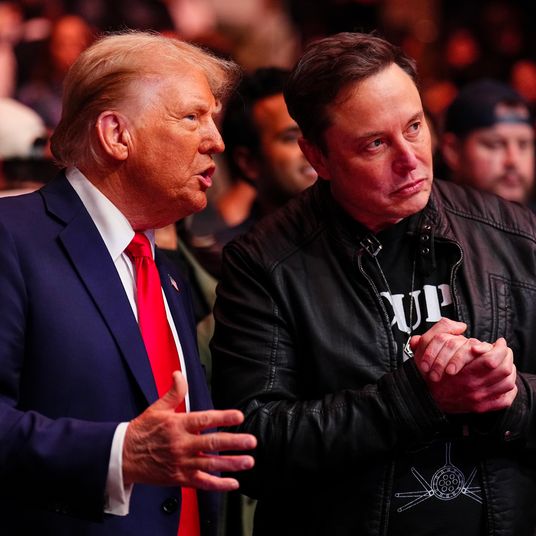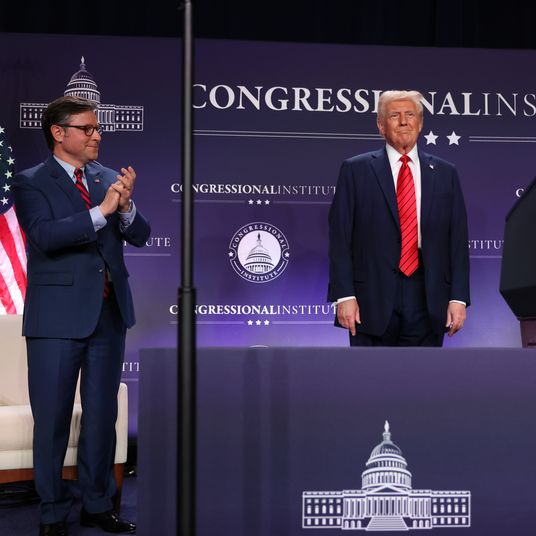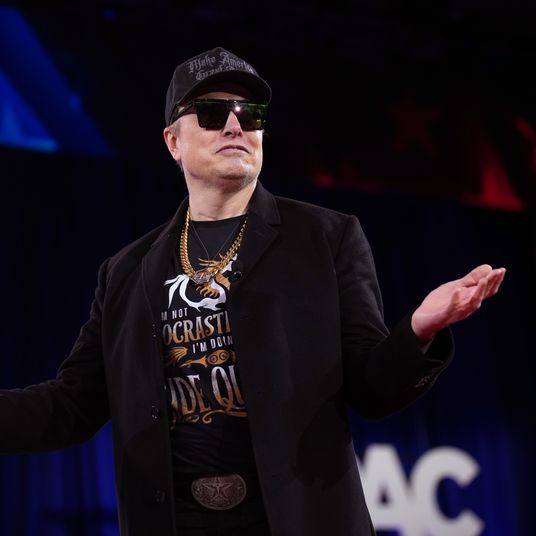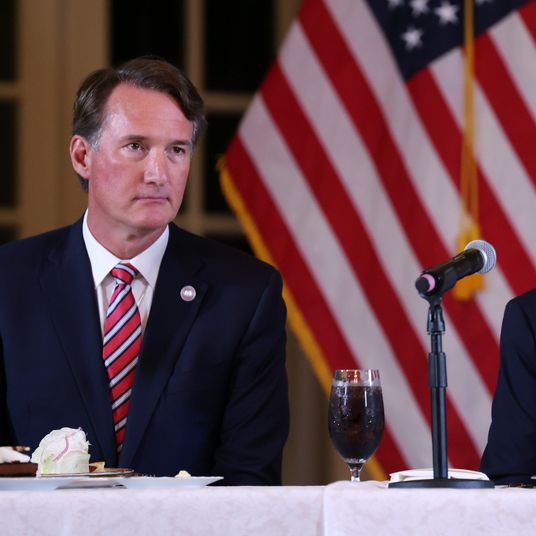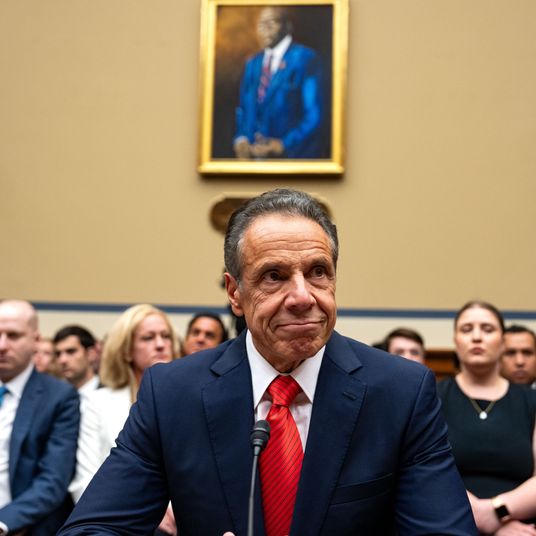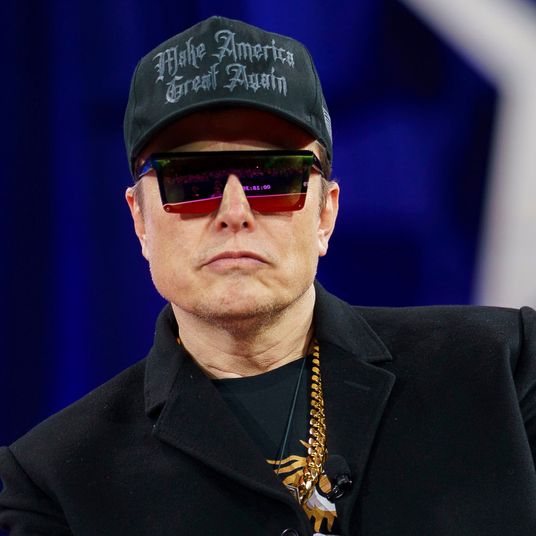
Republican John Thune has a problem. He’s served three terms representing South Dakota in the Senate as a conventionally conservative lawmaker close to the leadership. And it seems hanging around to see if he can succeed Mitch McConnell as Senate GOP leader is the main reason he’d run again at the age of 60 (apparently, his wife hates Washington, which happens to most political people eventually).
But according to the New York Times, Thune’s biggest problem is deciding whether he wants to fight for the top leadership job knowing that part of his reward for winning would be enforced subservience to Donald Trump:
Part of Mr. Thune’s hesitation owes to Mr. Trump and the potential for the former president — who lashed out at Mr. Thune early this year when the senator rejected his attempts to overturn the election — to intervene in South Dakota’s Senate primary race. But the larger factor may be the longer-range prospect of taking over the Senate Republican caucus with Mr. Trump still in the wings or as the party’s standard-bearer in 2024.
Susan Collins, one of Thune’s friends and colleagues lobbying him to stick around, said something striking about the Trump Factor in Thune’s calculations:
“We’ve just got to plow through this to the post-Donald Trump era, which I believe is coming,” Ms. Collins said, lamenting that the former president’s “haranguing the leader, Mitch, has gotten worse lately.”
The idea that there would soon be a “post-Donald Trump era” in GOP politics was a common (if not always publicly expressed) sentiment in 2016, when many viewed him as an accidental presidential nominee, and again at some of the many low points of his presidency. When it looked like he would probably get waxed by Joe Biden in 2020, the perception of Trump as an aberration who would give way to vintage Reagan-style conservatives gained strength again. And in early 2021 when a lot of Republicans, including Thune, refused to go along with Trump’s stolen-election claims and insurrectionary talk, it again appeared the 45th president might drift away into irrelevance.
It sure doesn’t look that way now, with Trump being the odds-on favorite for a party-backed comeback bid in 2024, with both elite and rank-and-file Republicans either embracing or tolerating his subversive and mendacious views about 2020. Even if Trump decides not to run in 2024, he has introduced and obtained mass support for an authoritarian-populist POV that repudiates traditional conservative Republican ideology on about every point other than hatred of government and its needier beneficiaries, their plutocratic economic policy leanings, and their comfort levels with racists and theocrats (not to mention racist theocrats). Susan Collins is 69 years old; it’s unlikely she will outlast Trumpism as the dominant point of view in her party.
Truth is, the old gang of Trump-skeptic conservatives is modest in the House and shrinking in their natural habit in the Senate:
After the retirements of G.O.P. senators including Pat Toomey of Pennsylvania, Rob Portman of Ohio and Roy Blunt of Missouri, Mr. Thune’s departure would represent perhaps the most revealing exit yet by a mainstream Senate Republican who has grown frustrated with the capital’s political environment and the former president’s loyalty demands.
Right now, the Pennsylvania, Ohio, and Missouri Republican Senate primaries are Trumpier-than-thou contests that will either tilt a triumphant new Senate majority to the hard MAGA right or keep Democrats in control. It’s understandable that Thune doesn’t want to be responsible for wrangling these people, with Trump looking over his shoulder. And unlike Collins, he can perhaps grasp that the “post-Trump era” may not begin until 2028 or even later, as Trumpism maintains its hideous grip on his party. It’s far past time for imagining that the man and his obnoxious and hateful worldview will just go away without a vicious fight.









